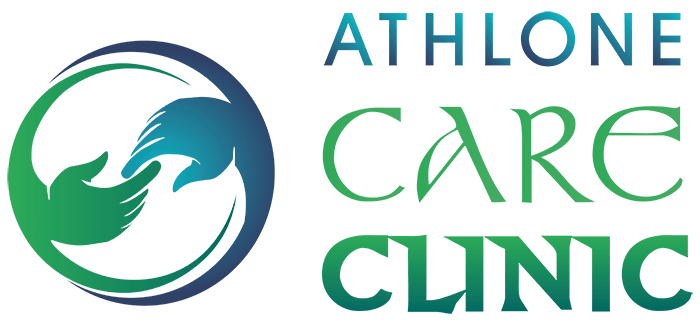Post Traumatic Stress
Flashbacks, nightmares & disturbing memories
What Is PTSD
PTSD & TRAUMA SYMPTOMS
HOW WE HELP
What is PTS?
Traumatic experiences are situations where one looses control over what is happening to them or others. Most commonly, these are road traffic accidents, Assault (violents, robbery or sexual), the sudden tragic loss of a loved one or geneside during times of war.
The effects are flachbacks, intrusive thoughts or memories that just seem to pop into your mind randomly or when you are trying to sleep, excessive anxiety and/or a loss of sensory awareness. The flashbacks and memories are often overwhelming, frightening, and difficult to control.
Often when people are faced with these disturbing challenges we try to forget or cover them up with other substances like alcohol or processes like gaming or cleaning. Unfortunatly this often makes the issues worse as they are notbeing processed effectivly so as not to cause disturbance anymore.


Counselling and psychotherapy with a trained professional can help. At Athlone Care Clinic we use the top evidance based treatments to resolve trauma such as Eye Movement Decensitisation and Reprocessing. This process helps clients reprocess the events that caused the trauma and desensitises the impact the memories have on ther day to day lives and relationships.
EMDR is not for the faint hearted and all clients will be fully assessed for suitability before proceeding. However, those who complete this therapy find a new freedom and joy in life after many years of suffering. EMDR is a highly effective neurological treatment that produces results regardless of clients belief in the approach itself.
If you are ready to end the nightmare, this is the most effective treatment for your PTS.
Causes of Trauma
Thanks to the development of brain scan technology, scientists can now observe the brain in action. These scans reveal that trauma actually changes the structure and function of the brain, at the point where the frontal cortex, the emotional brain and the survival brain converge.
A tiny peanut sized cluster of particals in the brain called the amygdala. This is responsible for survival and when we are harmed in some way it is the amygdulas job to react by causing us fear responces. Then in the furture any time we see, hear, smell, taste or feel something similar our brain spins us into that same old state of fear even if it is not rational.
For each individual, the cause of the trauma is different. For some it is one specific event, such as being the victim of sexual abuse or crime, for others it is that they were involved in an accident or that someone may have witnessing a horrendous event. For some, trauma and PTS is the result of a series of difficult events for example, if someone was systematically abused, continuous loss or several accidents.

Trauma & PTS Symptoms
Each individual who has gone through a traumatic event, or series of events, experiences different symptoms of PTS. For many, there are similar patterns of behaviours and emotions, while some may only experience one or two symptoms. We hope that the list below of common symptoms might help you understand if you are struggling with PTS. Please remember we are here to help. If you have any questions or concerns please reach out to any member of our care team for help.
Memories
One of the most common symptoms is intrusive memories that disrupt out day-to-day lives, inhibit normal sleep patterns or create anxiety and stress. These may include recurrent, distressing memories of the traumatic event. Nightmares or distressing dreams about the event. Suffering from flashbacks of the event as if it was happening again. A severe physical reaction or emotional distress to elements or situations which remind you of the traumatic event.
Avoidance
Many people struggle with avoidance when it comes to trauma and PTS. This can take the form of avoiding about thinking, or talking, about the event or events. For some it is the physically avoidance of activities, places or people which remind then, or connect with, the traumatic event.
Impact On Children
When children or young adults suffer through a traumatic experience they can exhibit any of the typical symptoms. For younger children they may also re- enacting the traumatic event, or aspects of the event, through play and creative outlets such as art, drama or writing. Many will also have frightening dreams which may contain aspects of the traumatic event or simply just a general increase in nightmare or distressing dreams.
It is importamt to contact a professional if any of these signs present in your child. If they become reclusive, cut all of their hair or self-harm in any way.
Physical & Reaction Changes
People suffering through trauma and PTS also typically exhibit changes in their physical and emotional reactions to situations. These are commonly referred to as trigger symptoms and can include being easily startled or frightened. Feeling like they are always on guard, in danger or overly sensitive to certain situations. Difficulty in sleeping, focusing on specific tasks or concentrating. An overwhelming sense of shame or guilt. Difficulties in regulating anger, aggression or being consistently irritable. Self-destructive, or self-harming, behaviours such as drinking, drug abuse, reckless behaviour or physical self-harm.
Mood & Thought Changes
The impact of experiencing a traumatic event or suffering with PTS normally affects a persons’ mood or thought patters. Some of the symptoms may be an increasingly negative viewpoint about oneself, others and the world. Consistent feeling of hopelessness about ones current situation and the future. Difficulties in creating or maintaining close relationships. A sense of isolation or detachment from friends and family. A reduction in positive sensations or feeling emotionless. A lack of interest in activities, events or hobbies which previously created enjoyment or were rewarding. Problem with memory recall, including difficulty in remembering aspects of the traumatic event.
Trauma & Stress
Trauma is stress run riot. Stress dis-regulates our nervous systems – but for only a relatively short period of time. Within a few days or weeks, our nervous systems calm down and we revert to a normal state of equilibrium. This return to normalcy is not the case when we have been traumatized. One way to tell the difference between stress and emotional trauma is by looking at the outcome – how much residual effect an upsetting event is having on our lives, relationships, and overall functioning.
If we can communicate our distress to people who care about us and can respond adequately, and if we return to a state of equilibrium following a stressful event, we are in the realm of stress. If we become frozen in a state of active emotional intensity, we are experiencing an emotional trauma – even though sometimes we may not be consciously aware of the level of distress we are experiencing
Traumatic Distress
We distinguish between traumatic distress and routine stress by assessing the following charateristics.
How quickly upset is triggered
How frequently upset is triggered
How intensely threatening the source of upset is
How long upset lasts
How long it takes to calm down
We Are Here To Help
The first thing we remind every client we work with is, we are here to help. We understand and empathise with your situation. More importantly, we can help you.
Sometimes the hardest step in a journey is the very first one. Reaching out and speaking to someone can be daughnting. We promise you, it is easier than you might expect, and once you’ve done it, you will begin to feel better already.
We want to make it as eaasy as possible for everyone to take the first step. That’s why there are a number of ways in which you can contact us which we have listed below.
Once you’ve contacted us what happens then? The frist step for all new clients is to gather some personal information over the phone. This is highly confidential and safe on our system. We then arrange an initial meeting with your therapist who will seek to understand your needs and how to help. It is also a good chance to get to know each other, which is important as we want you to feel confident and comfortable talking with us. We can answer any questions you might have and if your happy to proceed arrange your first appointment.

Send An Email
You can email us on contact@athlonecareclinic.ie
Drop Us A Call
Please don’t hesitate to call our team on 0906 455 302
Our Online Form
Head over to our contact page & complete our online form
